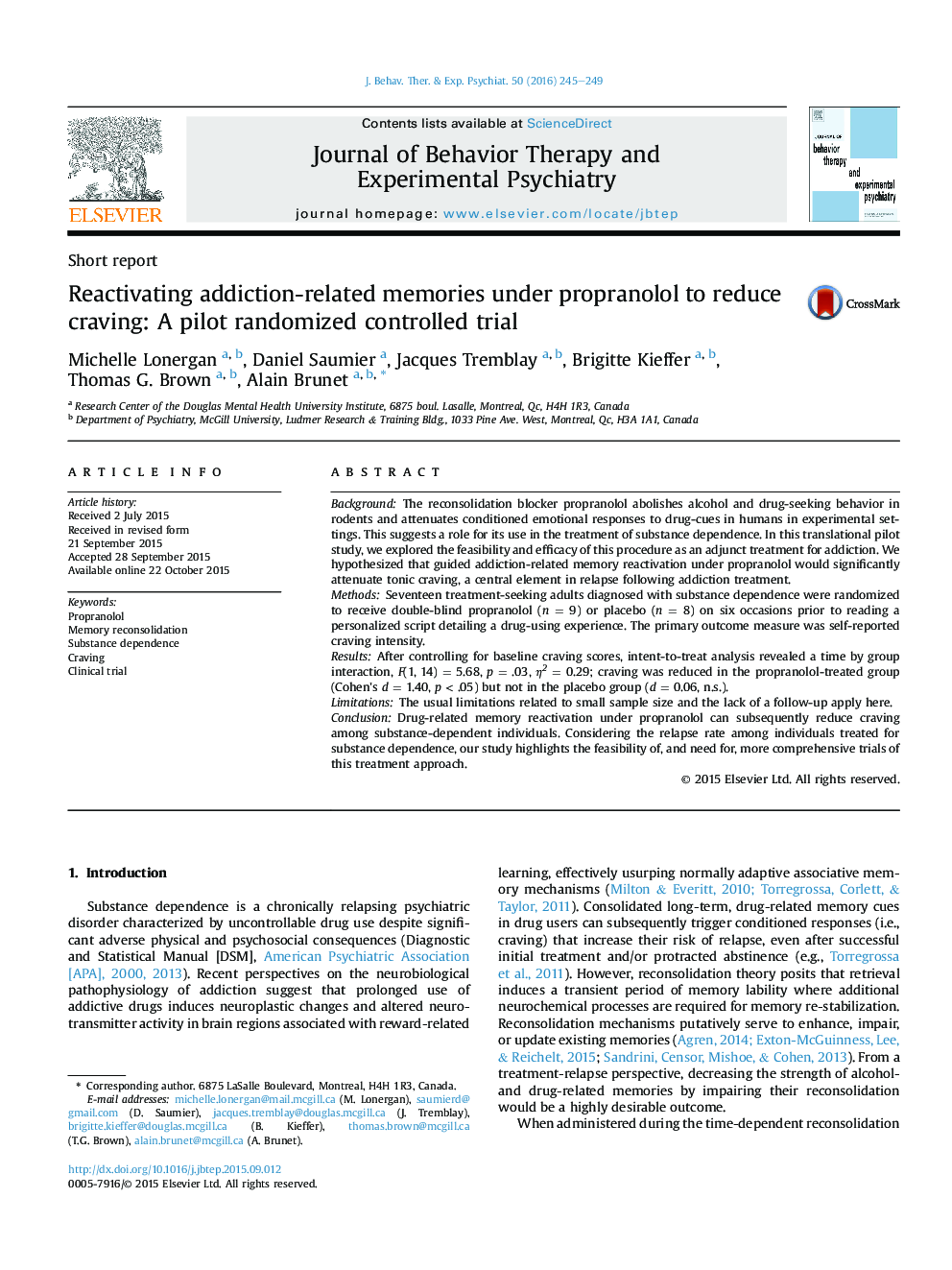| Article ID | Journal | Published Year | Pages | File Type |
|---|---|---|---|---|
| 910317 | Journal of Behavior Therapy and Experimental Psychiatry | 2016 | 5 Pages |
•We examine a treatment aimed at reducing the strength of drug and alcohol cravings.•The treatment is based on impairing memory reconsolidation using propranolol.•The treatment was successfully incorporated into two addiction treatment programs.•Only patients in the active treatment showed significant attenuation of craving.•Larger randomized placebo-controlled trials are warranted and needed.
BackgroundThe reconsolidation blocker propranolol abolishes alcohol and drug-seeking behavior in rodents and attenuates conditioned emotional responses to drug-cues in humans in experimental settings. This suggests a role for its use in the treatment of substance dependence. In this translational pilot study, we explored the feasibility and efficacy of this procedure as an adjunct treatment for addiction. We hypothesized that guided addiction-related memory reactivation under propranolol would significantly attenuate tonic craving, a central element in relapse following addiction treatment.MethodsSeventeen treatment-seeking adults diagnosed with substance dependence were randomized to receive double-blind propranolol (n = 9) or placebo (n = 8) on six occasions prior to reading a personalized script detailing a drug-using experience. The primary outcome measure was self-reported craving intensity.ResultsAfter controlling for baseline craving scores, intent-to-treat analysis revealed a time by group interaction, F(1, 14) = 5.68, p = .03, η2 = 0.29; craving was reduced in the propranolol-treated group (Cohen's d = 1.40, p < .05) but not in the placebo group (d = 0.06, n.s.).LimitationsThe usual limitations related to small sample size and the lack of a follow-up apply here.ConclusionDrug-related memory reactivation under propranolol can subsequently reduce craving among substance-dependent individuals. Considering the relapse rate among individuals treated for substance dependence, our study highlights the feasibility of, and need for, more comprehensive trials of this treatment approach.
